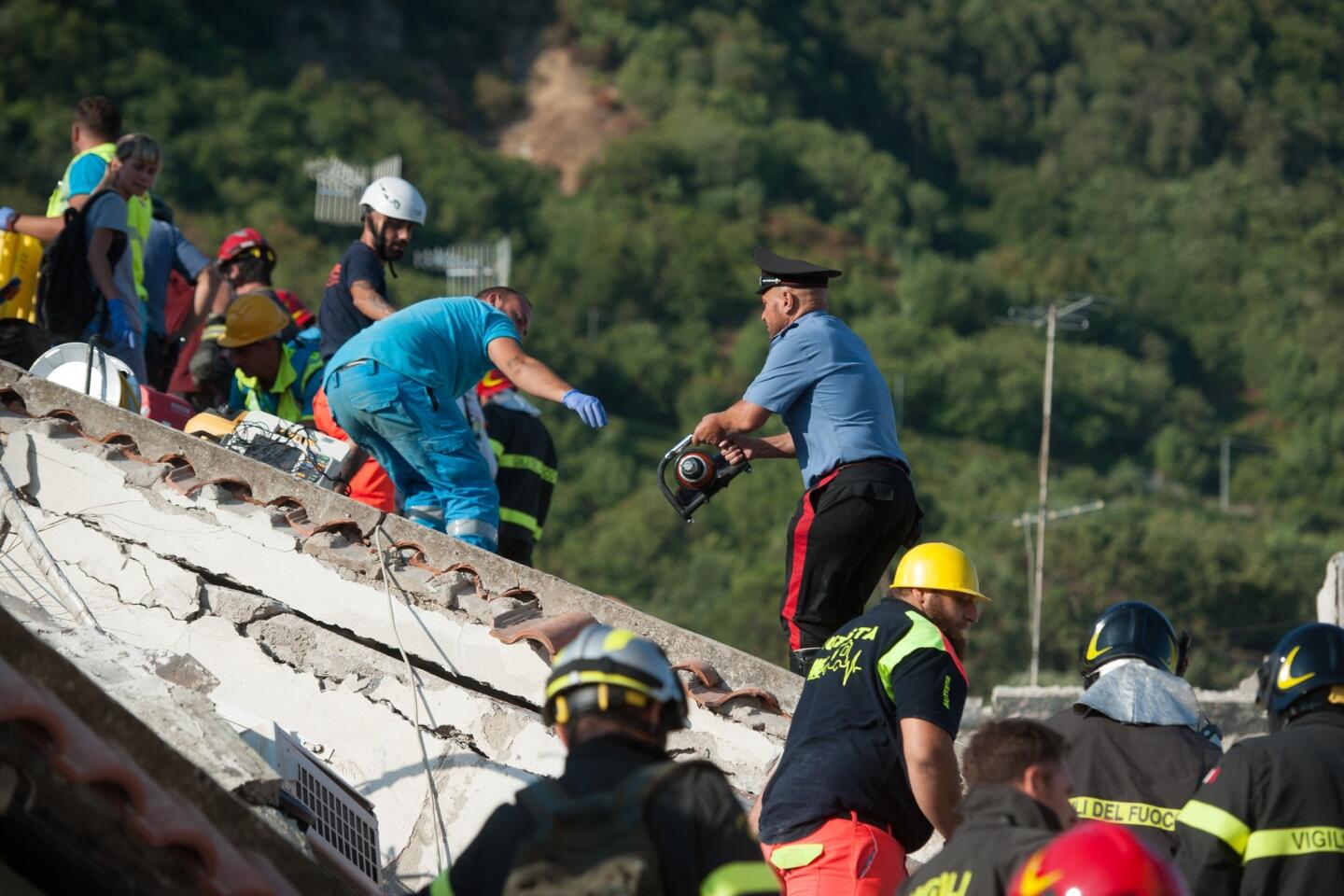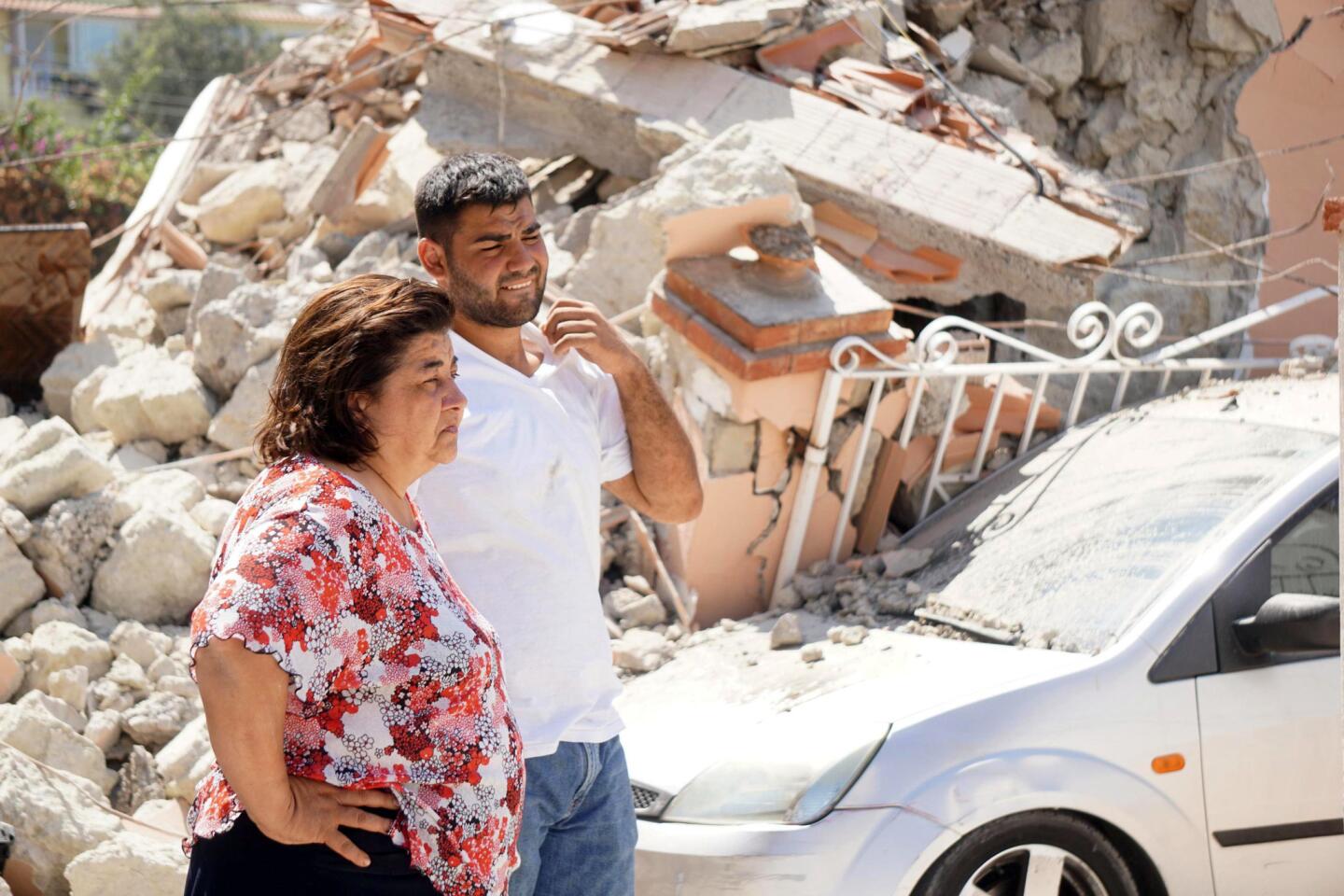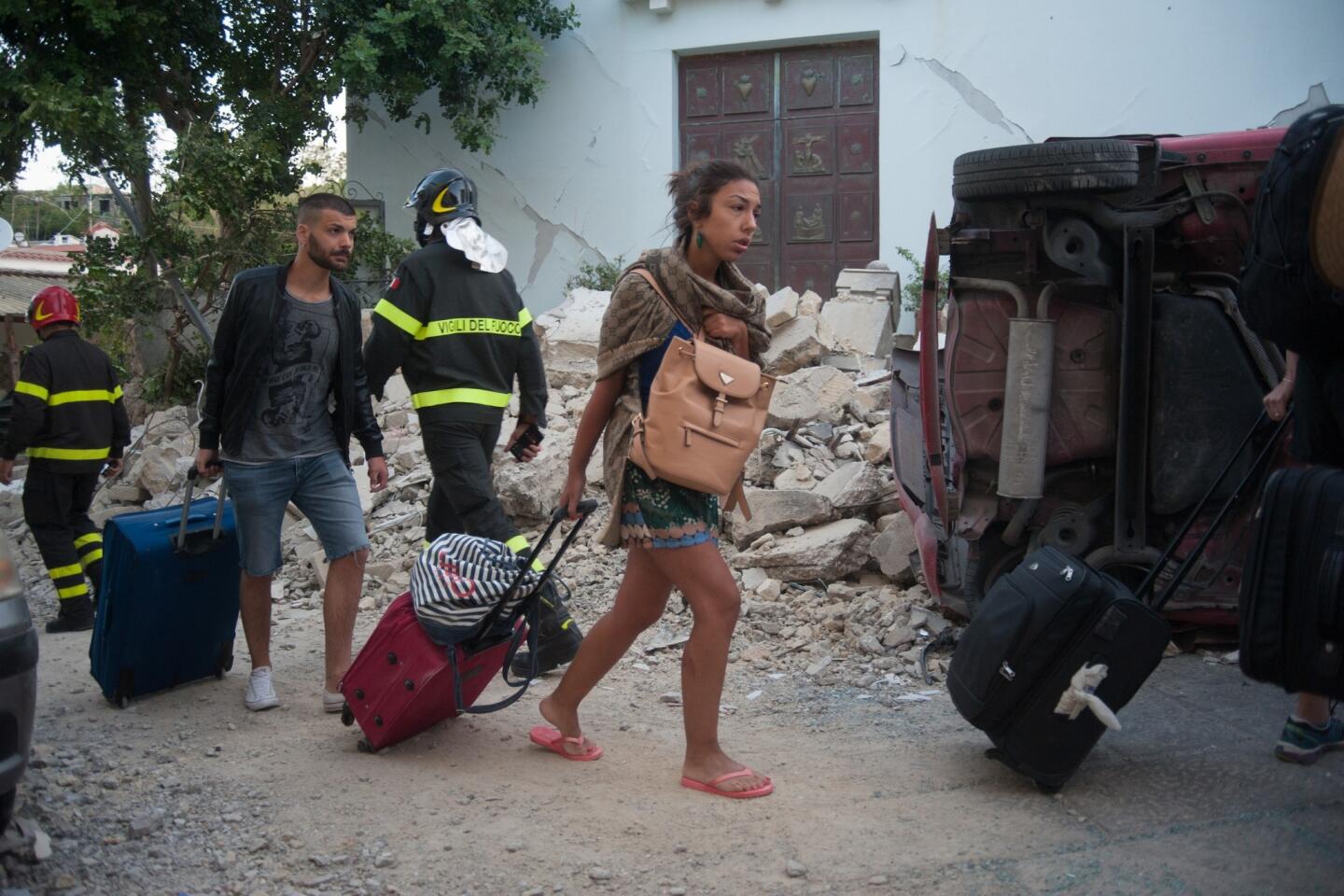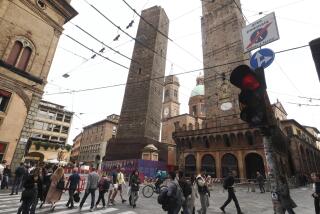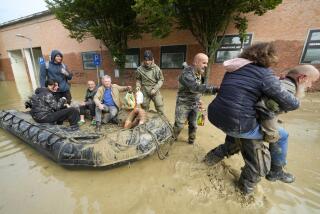A 4.0 quake causes devastation, raising a question: Just how bad is Italian construction?
- Share via
Reporting from Casamicciola, Italy — Rescuers on the Italian island of Ischia celebrated on Tuesday as they pulled three children from the wreckage of a house destroyed by a magnitude 4.0 earthquake that left two dead and 2,600 homeless.
But as in some past quakes, questions were raised about the ease with which Italians flout building standards after a relatively low-intensity quake caused buildings to crumble and claim lives. Other seismically active regions, including Southern California, experience quakes of similar intensity multiple times a year with little or no damage.
“This was a ridiculous quake with tragic results, something we cannot accept in a modern country,” said Domenico Angelone, spokesman for Italy’s National Assn. of Geologists.
Firefighters dug with their bare hands from the early hours of Tuesday to reach the three brothers — ages 7 months, 8 and 11 — after an upper story of their house in the town of Casamicciola collapsed on top of them, trapping them in tiny cavities.
“It was either destiny or the Holy Spirit, but something saved them,”said Luca Cari, a spokesman for the firefighters.
The quake hit the island near Naples at 8:57 p.m. on Monday, toppling buildings and leaving streets strewn with rubble. The tremor punched a hole in the wall of one home in Casamicciola, revealing a neatly laid dinner table within.
One woman was killed by falling pieces from a church, while the body of a second victim was yet to be extracted from rubble.
In Italy, ancient Roman and Renaissance buildings withstand quakes but it has been downhill since then.
— Michele Buonomo, an official with the environmental group Legambiente
Pasquale, the youngest of the three trapped brothers, was brought out to cheers at 4 a.m. while rescuers followed the sound of crying from his two elder brothers to locate them, 15 feet below in the rubble.
“We had to keep them talking to find them as we removed, piece by piece, the reinforced concrete of the ceiling that fell on them,” said Cari. “The oldest was shouting ‘Hurry up, don’t let us die!’”
Once saved, the two older boys were reunited with their parents, who both had escaped from the house.
‘’It was a terrible night. I don’t have words to explain it,” said Alessandro Toscano, whose hands were bandaged after digging through the rubble looking for the boys.
Police official Andrea Gentile said Ciro, the 11-year-old, had saved 8-year-old Mattia by pushing him under a bed.
“The gesture surely saved them both,” he said. “Then with the handle of a broom he knocked against the rubble, making them heard by rescuers.”
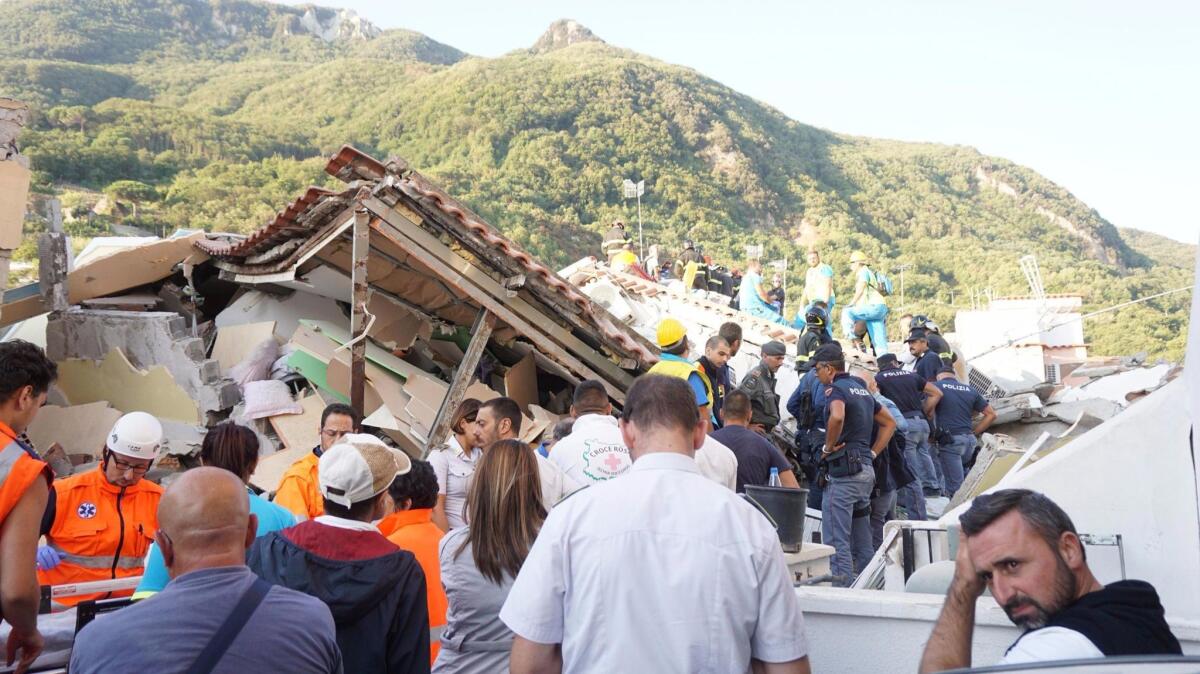
The mountainous, 18-square-mile volcanic island, which has a population of about 60,000 and has drawn illustrious visitors including the late author Truman Capote and, more recently, German Chancellor Angela Merkel, is regularly shaken by earthquakes, including one in 1883 that killed 2,000 people.
That has not deterred locals from ignoring seismic building regulations and constructing unlicensed homes using cheap concrete, a common practice in much of the south of Italy.
“On Ischia, locals put up buildings in 48 hours, and we have just seen the result — they quickly collapse,” said Michele Buonomo, an official with the environmental group Legambiente.
“When the government announced two illegal building amnesties in recent years, it received 27,000 applications from Ischia alone,” he said. “In Italy, ancient Roman and Renaissance buildings withstand quakes but it has been downhill since then.”
Today, the plague of substandard buildings continues despite Italy’s high level of seismic activity.
The Ischia quake struck days before the first anniversary of the magnitude 6.2 quake that killed nearly 300 people in and around Amatrice in central Italy.
Monday’s temblor was felt on the mainland in Pozzuoli, near Naples, which sits on the Campi Flegrei volcanic area and has risen over 10 feet since 1950 because of underground volcanic activity.
Last year, six undersea “side vents” of nearby Mt. Vesuvius — the still-active volcano that famously destroyed Pompeii in AD 79 — were discovered close to Ischia.
Looking at the remains of the house in which the boys were trapped on Tuesday, their grandmother Carmela Marotta, said: “This house was built on sand.”
Kington is a special correspondent.
ALSO
Sailors’ remains found after crash of U.S. warship
Danish police: Submarine owner says woman died in accident before the ship was sunk
What? Britain’s Big Ben expected to stay (mostly) silent for at least four years
UPDATES:
11:25 a.m.: This article has been updated throughout with staff reporting and analysis of construction standards.
This article was originally posted at 4:55 a.m.
More to Read
Sign up for Essential California
The most important California stories and recommendations in your inbox every morning.
You may occasionally receive promotional content from the Los Angeles Times.
